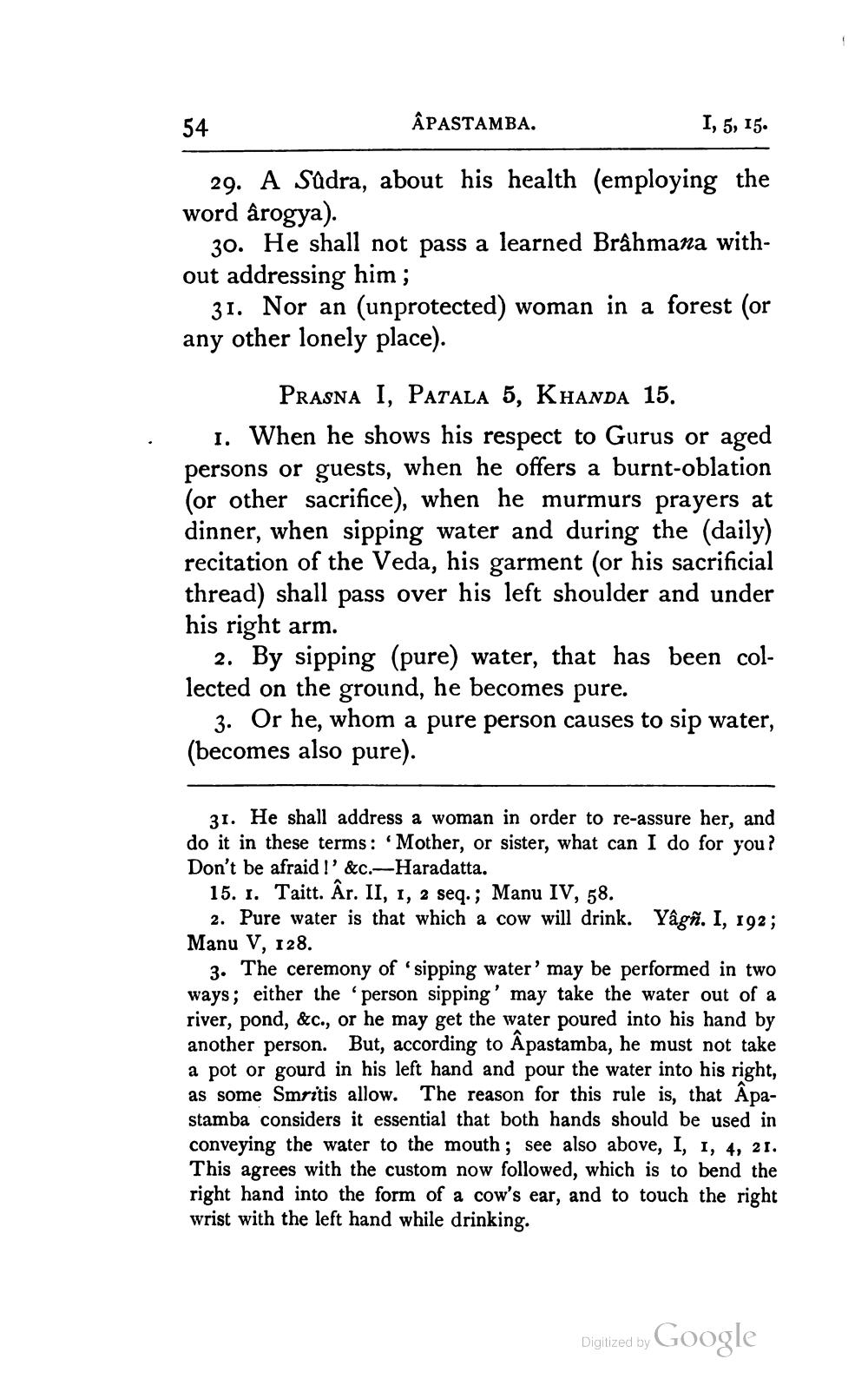________________
54
ÅPASTAMBA.
I, 5, 15.
29. A Sudra, about his health (employing the word ârogya).
30. He shall not pass a learned Brahmana without addressing him;
31. Nor an (unprotected) woman in a forest (or any other lonely place).
Prasna I, Patala 5, Khanda 15. 1. When he shows his respect to Gurus or aged persons or guests, when he offers a burnt-oblation (or other sacrifice), when he murmurs prayers at dinner, when sipping water and during the (daily) recitation of the Veda, his garment (or his sacrificial thread) shall pass over his left shoulder and under his right arm.
2. By sipping (pure) water, that has been collected on the ground, he becomes pure.
3. Or he, whom a pure person causes to sip water, (becomes also pure).
31. He shall address a woman in order to re-assure her, and do it in these terms: 'Mother, or sister, what can I do for you? Don't be afraid !' &c.-Haradatta.
15. 1. Taitt. Är. II, 1, 2 seq.; Manu IV, 58.
2. Pure water is that which a cow will drink. Yâgñ. I, 192; Manu V, 128.
3. The ceremony of 'sipping water' may be performed in two ways; either the person sipping' may take the water out of a river, pond, &c., or he may get the water poured into his hand by another person. But, according to Apastamba, he must not take a pot or gourd in his left hand and pour the water into his right, as some Smritis allow. The reason for this rule is, that Apastamba considers it essential that both hands should be used in conveying the water to the mouth; see also above, I, 1, 4, 21. This agrees with the custom now followed, which is to bend the right hand into the form of a cow's ear, and to touch the right wrist with the left hand while drinking.
Digitized by Google




